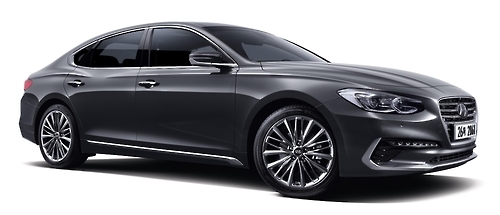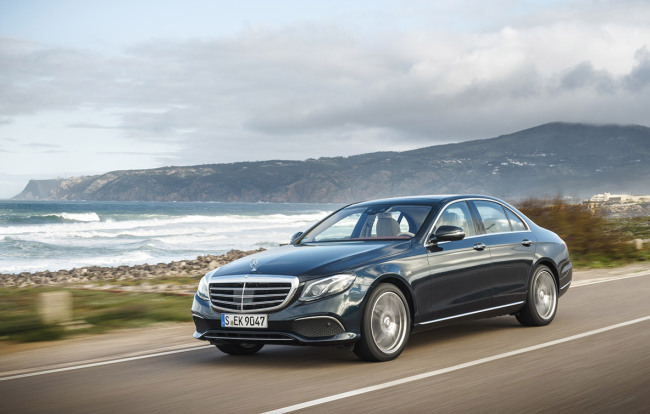To share or go premium: Consumers make polarized choices in auto industry
By Korea HeraldPublished : May 7, 2017 - 15:27
A rising trend among motorists, particularly younger ones, is to rent rather than own, prioritizing efficiency.
While owning a vehicle in South Korea has long been considered a rite of passage to show economic achievement, more people are shunning making such investments and opting for car sharing services. Such tendency has also leveraged the growth of an opposing trend of the fewer but more lucrative consumption of high-end luxury brands, according to the industry insiders.
“The phenomenon can be seen as minimalism. People are beginning to spend money on what they value rather than what society deems important,” said Kim Min-jeong, professor of consumer economics at Sookmyung Women’s University.
“The rising popularity of car sharing shows that a growing number of people do not feel the need to invest large sums of money in a car.”
With car sharing apps, drivers reserve the nearest available car and pay for the amount of time used.
So Car, South Korea’s No. 1 car sharing service operator run by SK Group, charges 1,200 won ($1.05) for each 10 minutes of using the Kia Morning compact car.
While owning a vehicle in South Korea has long been considered a rite of passage to show economic achievement, more people are shunning making such investments and opting for car sharing services. Such tendency has also leveraged the growth of an opposing trend of the fewer but more lucrative consumption of high-end luxury brands, according to the industry insiders.
“The phenomenon can be seen as minimalism. People are beginning to spend money on what they value rather than what society deems important,” said Kim Min-jeong, professor of consumer economics at Sookmyung Women’s University.
“The rising popularity of car sharing shows that a growing number of people do not feel the need to invest large sums of money in a car.”
With car sharing apps, drivers reserve the nearest available car and pay for the amount of time used.
So Car, South Korea’s No. 1 car sharing service operator run by SK Group, charges 1,200 won ($1.05) for each 10 minutes of using the Kia Morning compact car.

Car sharing service providers here have seen a stark increase in business over the past few years.
So Car posted 2.4 million members, 65,000 cars and 2,950 So Car parking zones in 2016, the company said. In 2012 it had 3,000 members, 100 cars and 50 garages.

Industry No. 2 Green Car also had 2.1 million members in 2016, from 6,500 in 2012.
“Automobiles are expensive consumable goods that drivers consistently need to spend money on even though the value of cars decline the second they are delivered to owners. The younger generation is starting to view this as an irrational investment. So they are turning to car sharing,” said Kim Pil-soo, a professor of automotive engineering at Daelim University.
“Car sharing is far more economical than owning a car, so it will further garner popularity.”
Motorists who drive about 8,000 kilometers a year spent about $12,700, including gas, parking, taxes and more, which is about twice the $6,700 spent by those who use car-sharing services including Uber, according to US-based auto insurance company AAA.
Car sharing has been rising as a worldwide trend.
According to US-based consulting firm Alix Partners, some 26 million people will join a car-sharing service by 2020, from the current 4.9 million.
Driverless technology is expected to further trigger consumers’ preference for car sharing.
Some 11 million units of autonomous driving vehicles will hit the roads by 2030, which equates to 64 people sharing one vehicle, according to a report released by technology market intelligence company ABI Research.
ABI Research projected, the majority of people will no longer own a car and instead use a car-sharing service when a car is needed.
Amid the rising trend, global carmakers are tapping into the car-sharing market.
Hyundai Motor, South Korea’s leading automotive company, provides 2,000 units of the Ioniq EVs on Jeju Island together with Hyundai Capital, the country’s largest auto financing and leasing company, as part of their business agreement to start a car-sharing service, the company said.

Through the new business, the country’s leading automaker is seeking to expand its customer base.
GM Korea, the local branch of US carmaker General Motors, is also running a test drive event of its flagship compact car the Next Spark with Green Car until the end of May with an aim for more customers to experience its best-selling model, the company said.
On the other side, there is also a growing market that targets a smaller but far more lucrative consumer group for premium, high-end automobiles.
The premium auto market grew by an average 8.7 percent every year, 5.7 percentage points higher than mainstream cars, between 2012 and 2015, according to global research firm IHS.
“Those with the financial capability and value exclusive cars will invest their money in pricey premium models,” Kim said. “Consumers are choosing to spend money on what they value.”
Mercedes-Benz Korea sold 56,343 units here in 2016, surpassing 50,000 units for the first time among foreign carmakers in the domestic auto market.
GM Korea, the local branch of US carmaker General Motors, is also running a test drive event of its flagship compact car the Next Spark with Green Car until the end of May with an aim for more customers to experience its best-selling model, the company said.
On the other side, there is also a growing market that targets a smaller but far more lucrative consumer group for premium, high-end automobiles.
The premium auto market grew by an average 8.7 percent every year, 5.7 percentage points higher than mainstream cars, between 2012 and 2015, according to global research firm IHS.
“Those with the financial capability and value exclusive cars will invest their money in pricey premium models,” Kim said. “Consumers are choosing to spend money on what they value.”
Mercedes-Benz Korea sold 56,343 units here in 2016, surpassing 50,000 units for the first time among foreign carmakers in the domestic auto market.

Its operating profit totaled 114.3 billion won last year, up 2.8 percent on-year, the company said.
The German luxury’s best-selling E-class sedans cost up to 98.7 million won.
Hyundai Motor’s luxury brand Genesis is heading the company’s performance amid declining sales.
When factoring in the sales of Genesis, Hyundai Motor America sold 63,050 units last month, up 1.3 percent on-year, company data showed.
Without Genesis, sales of Hyundai Motor America dropped 0.9 percent on-year in April.
The company sold 1,399 units of Genesis models there last month.
SsangYong Motor, the South Korean unit of India’s Mahindra & Mahindra, recently rolled out the G4 Rexton, a premium large-size SUV lineup, with an aim to boost sales by expanding its market share in the premium SUV market.
By Kim Bo-gyung (lisakim425@heralcorp.com)
-
Articles by Korea Herald






![[From the Scene] Monks, Buddhists hail return of remains of Buddhas](http://res.heraldm.com/phpwas/restmb_idxmake.php?idx=644&simg=/content/image/2024/04/19/20240419050617_0.jpg&u=20240419175937)








![[From the Scene] Monks, Buddhists hail return of remains of Buddhas](http://res.heraldm.com/phpwas/restmb_idxmake.php?idx=652&simg=/content/image/2024/04/19/20240419050617_0.jpg&u=20240419175937)

![[KH Explains] Hyundai's full hybrid edge to pay off amid slow transition to pure EVs](http://res.heraldm.com/phpwas/restmb_idxmake.php?idx=652&simg=/content/image/2024/04/18/20240418050645_0.jpg&u=20240419100350)

![[Today’s K-pop] Illit drops debut single remix](http://res.heraldm.com/phpwas/restmb_idxmake.php?idx=642&simg=/content/image/2024/04/19/20240419050612_0.jpg&u=)